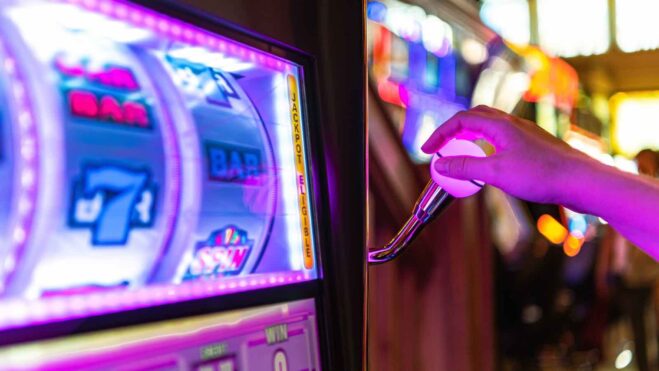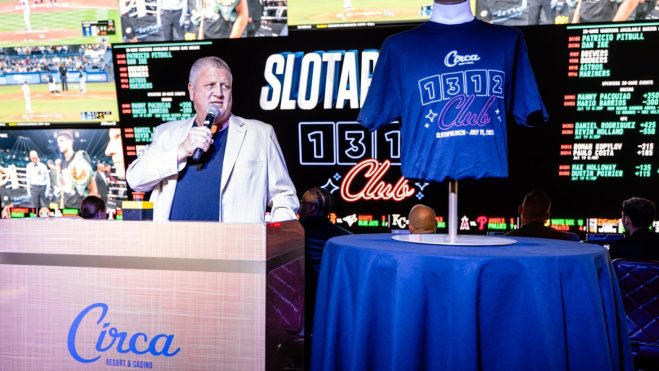The Complete Idiot’s Guide To ‘Sweepstakes Casinos’
Most of your questions about the rapidly growing vertical answered in one handy conversation
5 min

If you’re on an orbit passing anywhere near Gambling Land, there’s a pretty good chance that in recent months you’ve observed a newer subset of online casinos, popularly referred to as “sweepstakes casinos,” gaining traction. Chumba, High 5 Casino, McLuck, Pulsz, any of these sound familiar?
Well, their growing collective revenue and visibility has bubbled high enough to put the category on the American Gaming Association’s enemy list, likewise for certain lobbyists of regulated operators who have identified the category as a clear and present competitive threat.
But you’re not here for us to wax poetic about lobbying turf wars. The purpose of this conversation between us and you, dearest dimwit, is to identify these so-called “sweepstakes casinos” and explain what they are and how they exist.
So, let’s just start right here. You ask:
What is a “sweepstakes casino”?
It’s a social online casino — which is a website or app where people can play digital and live-dealer casino games online — that offers sweepstakes promotions. The common use of “sweepstakes” in the name refers, basically, to the mechanism that allows the casino to operate for actual stakes legally.
Is that because online casinos are not legal?
Well, online casinos are legal and regulated by governmental agencies in seven U.S. states so far (Connecticut, New Jersey, Michigan, Delaware, Rhode Island, Pennsylvania, and West Virginia), but in the other jurisdictions, state law does not expressly authorize them. However, the operators of these social casinos with sweepstakes promotions are (based on my information) entirely complying with a subset of laws governing sweepstakes contests that, in effect, makes them legal and compliant.
You mean sweepstakes like Publishers Clearing House, or like a cereal/snack box giveaway, where you enter your email or mail in a contest entry form?
Yes, exactly. Currently, Nabisco is running a “Snack and Play” contest where 50 entrants will win a Nintendo Switch and other prizes. You’ll typically see certain legal terms and phrases in these promotions, and it’s based on way state law sets them up (more on this below):
“NO PURCHASE NECESSARY” or
“MAKING A PURCHASE OR SCAN WILL NOT INCREASE YOUR CHANCES OF WINNING”
All sorts of companies — from fashion to food to sporting goods to furniture companies — run promotional sweepstakes contests to boost sales and engage with their clientele or prospective buyers.

But typically they’re not getting entries into an online casino, right?
Right, it’s typically a product like a video game in the above example or it could be clothing, a trip, tickets to an event. And then at some date after the contest opens, the organization running the sweepstakes contest will have a random drawing, and the stated number of winners will get contacted to claim their prizes.
Maybe like a trip to a casino?
Ahhh. I mean, yeah, theoretically, but let’s just keep that separate, OK? The point is, for these sweepstakes to operate legally, one of these three things must be removed from the equation:
- Prize
- Chance
- Consideration
The prize and and “chance,” well, that’s fairly obvious, we hope. Chance can be a random drawing. In order to run a legal promotion, the group running the sweepstakes will offer some Alternative Method of Entry (AMOE). That’s what the whole “NO PURCHASE NECESSARY” refers to.
You do not, in fact, have to actually purchase a Nabisco snack or whatever it is to enter the contests that are operating in accordance with this type of promotion. You can fill out the form or send in an entry, and you will have the same chance to win as someone who made a purchase and got their entry ticket for the chance drawing.
That’s what consideration means?
Basically, yeah. It’s a legal term that refers to something of value in exchange for something else. But in sweepstakes, consideration is taken out of the equation, so you do not have to give something, or make a purchase, to enter the giveaway.
OK, but weren’t you supposed to be explaining these “sweepstakes casinos”?
Yes, dammit, I am trying! The point is that operators of these casinos have basically taken this model, and applied it to casinos, and while there are many detractors who think that it’s silly or illegal, it does actually comply with the law and rules as I’ve attempted to explain above.
So the thing that people are getting when they sign up for a casino with sweeps promotions … what is it?
Thank you. Yes, they’re getting coins to play at the casino. One of two kinds of coins. It may vary, but typically there are “gold coins,” which are given away and can be used in one section of the casino, and also “sweeps coins,” which are often added in as a giveaway and can be used in another section of the casino. This is called a dual-currency system.
The gold coins, well, they can be used for entertainment, to play online casino games just for the enjoyment of playing them and enjoying the experience.
Like video games?
Sure, that works. And for the sweeps coins, that’s where things are different. People can, if they meet play-through requirements, actually redeem sweeps coins for real money. Via PayPal or via ACH or a variety of payment processors.
So in this way, it does resemble a real casino. And people who want to acquire more sweeps coins, well they can purchase a variety of quantities of gold coins that … happen to include a certain number of sweeps coins too.
But you can’t really do anything with those coins.
Well, you can use them for entertainment, to play casino games without prizes, access different features. Believe it or not, people spend a ton of time playing games on their phones. But that’s not really the point.
Then what is point?
The point is that these “sweepstakes casinos” are, barring any transgressions that have not yet been discovered, operating legally and in compliance to the letter of the law in about 41 U.S. states where they have become popular.
You’ve used the term “social casinos.” So, that’s something different?
“Sweepstakes casinos” are a form of social casinos, but with a non-sweepstakes social casino, there’s no currency that can be withdrawn. Pure social gaming only involves play money. Players can still spend real money — it’s like video gaming, in that you can make in-game purchases to unlock special features and potentially make it more fun. But you can’t win real money or prizes. On the business side, social casinos make their money through those in-game purchases and through advertising.
May I ask one more question?
Sure, what is it?
My son is using this app called Fliff, and I think it’s a sportsbook, but I think it also uses the same kind of currency setup or sweepstakes model. Is this basically the same thing?
Wait, you have an adult child? Oh goodness.
I do.
OK. Well, the short answer is yes. Fliff is a “social sportsbook” that basically uses the sweepstakes model we covered earlier. It sticks to sports, not casinos, at least not under that brand name, and has become very popular in places in the U.S. like California and Texas where states have not (yet) legalized online sports betting. In effect, these apps are filling the void.
What void?
You know what, let’s break here. Farewell, friend.
[This article has been updated to clarify some terminology used in its initial publication.]





